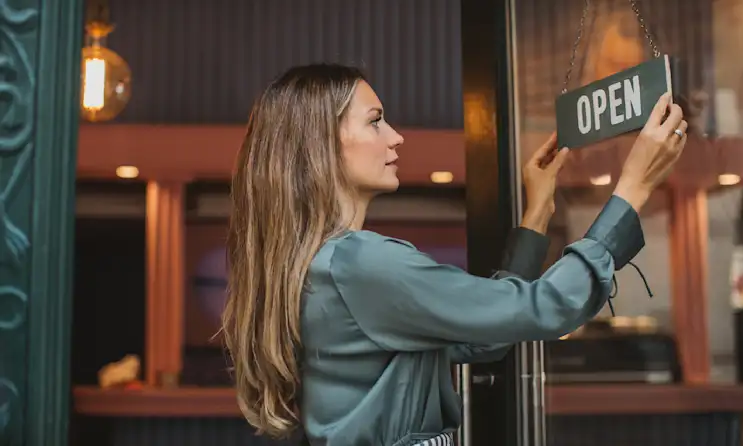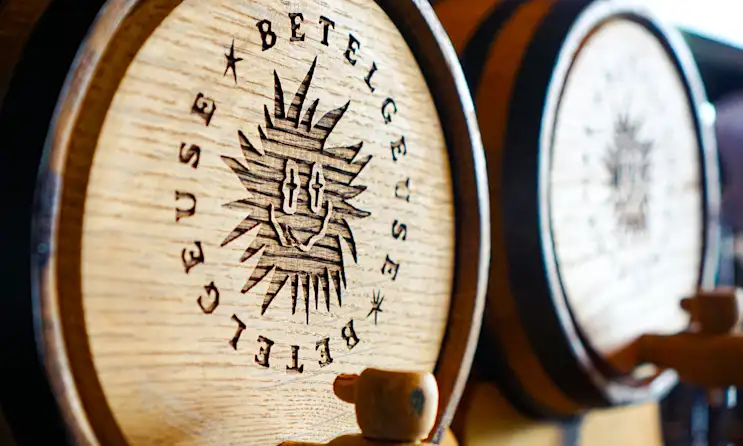New Openings
How to Get a Liquor License in Texas
August 2, 2022
Need help navigating liquor licensing in the Lone Star State? Let this be your guide.
Disclaimer: This information is not intended to be legal advice. Contact your attorney or state authority if you have questions about compliance. Last Updated: July 2022
Navigating liquor licensing in Texas is a challenge, and COVID-19 only complicated matters. Restaurants that required proof of vaccination were in jeopardy of losing their liquor license, and while a seven-month grace period on expired licenses, enacted in September 2021, did help some establishments, many lost their ability to serve alcohol.
However complex the landscape may be, it’s crucial for restaurants to understand how the Texas Alcoholic Beverage Commission (TABC) operates. Read on to find out how to get your licensing needs met.
Types of Liquor Licenses
There are more than 30 types of liquor licenses in the state of Texas. They fall into three main buckets: Manufacturing, Distribution and Retail. At a high level, businesses that fall into the Manufacturing category are ones that make the alcoholic beverages, those in the Distribution category transport or deliver them and anyone in the Retail category sells them directly to consumers.
For restaurants, the license you’re looking for is probably the Mixed Beverage Permit (MB). This Retail license covers the sale of distilled spirits, wine and malt beverages for on-premises consumption only. You might also consider a Food and Beverage Certificate (FB) to avoid certain bond issuance requirements.
How Much Does a Texas Liquor License Cost?
The Mixed Beverage Permit costs $5,300 for a new liquor license and $2,650 for each renewal, which occurs every two years. These costs include state fees only. You’ll need to consult your local government to understand city and county fees.
See here for a full list of licensing fees.

RESOURCE
The Houston Restaurant Worker Report
Learn how Houston's restaurant workforce is growing and how to attract more workers.
How to Apply for a Liquor License in Texas
You can file your application through the state’s Alcohol Industry Management System (AIMS), or you can submit using paper forms. TABC highly encourages applicants to use AIMS and warns that the processing time for paper applications is significantly longer. Find instructions here for submitting through mail, otherwise use the AIMS service and follow the steps below to make things easier. If you feel stuck at any point in the process, you can contact your local TABC office.
1. Create an AIMS account
Getting set up on AIMS is relatively straightforward. The system is only compatible with two Internet browsers — Google Chrome and Microsoft Edge — so keep that in mind as you begin. Go to https://tabc.texas.gov/aims and click Visit AIMS to make your account.
TABC has step-by-step guides on how to do this:
2. Apply for a new license
Once your account is created and you’re logged in, you’ll see a section on your dashboard called Apply for a new license/subordinate. You can pause, save and return to your application at any time.
TABC has step-by-step guides on how to fill out your application:
3. Complete a TABC Licensing Course
Although it’s not required, completing a course that walks you through the responsibilities of your license or permit is highly recommended. Fill out a form attestation to certify that you finished the course, and include a copy alongside your application while in AIMS. See the TABC Licensing Courses here.
4. Budget at least 60 days for processing
It’s best to start the application process early. Depending on what kind of application you submitted and the certification needed by your local government, processing will take between 45 and 60 days. In some cases, it could take even longer — so plan ahead.
Curious about where you stand? You can check your application status here.
What to Do to Keep Your Liquor License
Comply with the liquor laws and stay in TABC’s good graces by following these tips for safeguarding your license. From following sign requirements to reporting disturbances, here are five tips to protect your credentials.
1. Post the required signs
There are five signs to keep in mind as a liquor license holder. The Texas Alcoholic Beverage Commission will provide them free of charge.
60-Day Sign: If you’re applying for a new license, you’ll likely need to post this sign that notifies the public of your intent to sell alcohol. The sign needs to be displayed outside for 60 days before TABC will grant your license. Consult with your local TABC office if you have any questions about whether this impacts you.
Red Handgun Warning Sign: This sign is required if you do not hold a Food and Beverage Certificate (FB) and if sales from alcoholic beverages make up more than 51% of gross receipts.
Health Risks Warning Sign: You must place this sign at the exit of all public restrooms and ensure it’s hung at a visible level. It educates guests on alcohol-related birth defects.
Human Trafficking Sign: Like the Red Handgun Warning Sign, this notice is only required if you do not hold a Food and Beverage Certificate (FB).
Public Information and Complaint Sign: This sign is required for all establishments and must be posted in a prominent location.
2. Only sell alcohol during authorized times
Under the Mixed Beverage Permit, you can sell alcohol during the following times:
Monday - Friday: 7 a.m. to midnight
Saturday: 7 a.m. to 1 a.m.
Sunday: 10 a.m. to midnight
No alcoholic beverages can be served or consumed 15 minutes after closing time.
3. Encourage staff to become certified
It only takes a few hours to complete the Seller/Server Certification, and while doing so is not required under state law, the TABC highly encourages it. Trained employees help keep your establishment safe by protecting you from some liabilities under the Alcoholic Beverage Code.There are online training courses and agency-approved training schools that offer the certification. The curriculum covers intervention techniques to avoid selling to minors and intoxicated patrons, as well as state laws around alcohol sales. Seller/server certification training is valid for two years. Read more about TABC Certification here.
4. Report disturbances to TABC
As a license holder, you’re required to report “breaches of peace” within a certain time frame after they occur. If there is a shooting, stabbing, incident causing serious bodily injury or murder, you need to report it within 24 hours to TABC. If law enforcement or emergency medical services come on-premises, someone threatens another person with a weapon, a firearm is discharged on-premises, minor to moderate bodily injury is caused or property damage occurs, you need to report it within five days to TABC.There are three ways to report incidents:
In person at your local TABC office
Via email through breachofpeace@tabc.texas.gov using the Breach of the Peace Reporting form (make sure to include your county in the subject line)
Through the Alcohol Industry Management System (AIMS)
5. Remember to renew
You’re responsible for renewing your license every two years. Prior to the expiration date, you’ll receive a reminder postcard from TABC. Read more here about renewing or follow the step-by-step instructions below:
How To Renew Your License [Video]
Additional Resources for Texas Restaurants
Quick Links

RESOURCE
The Dallas Restaurant Worker Report
Learn how Dallas' restaurant workforce is growing and how to attract more workers.
Recommended

New Openings
14 Types of Restaurants to Consider Opening
October 5, 2023
An overview of different restaurant concepts and what to know about them.

Marketing
22 Best Restaurant Logos to Inspire Your Design
January 11, 2023
Take a look at successful restaurant logo examples, and read about why they work.

New Openings
How to Get a Liquor License in California
August 2, 2022
Everything restaurants need to know about serving alcohol in the Golden State.

